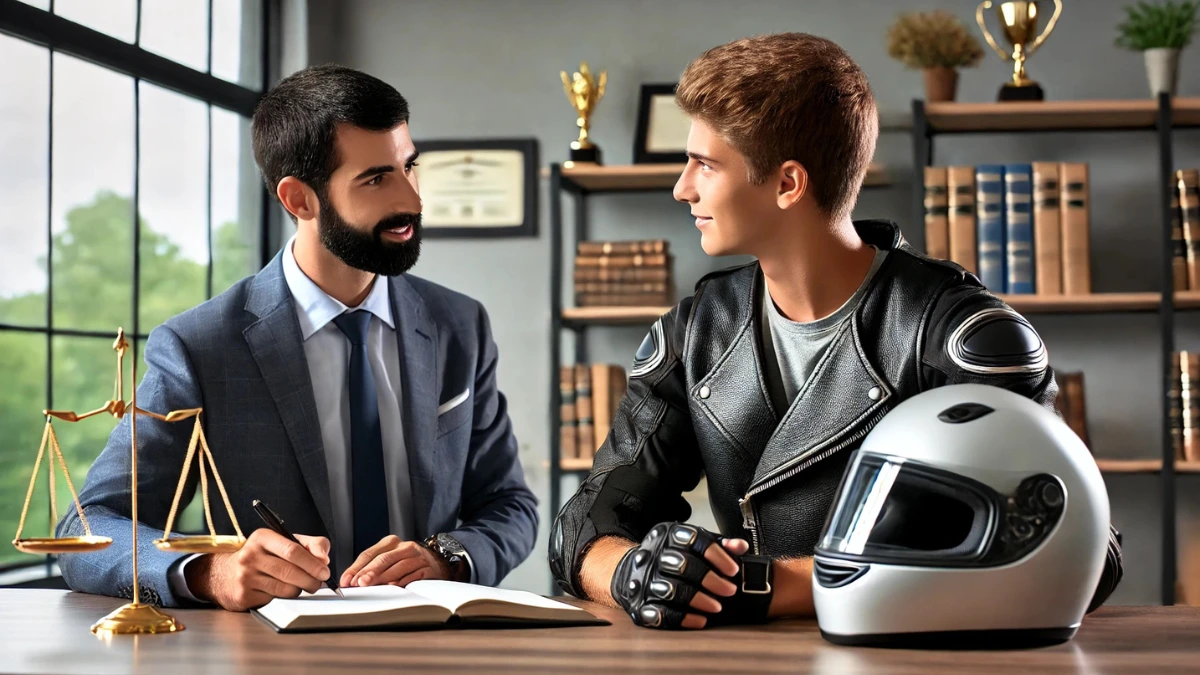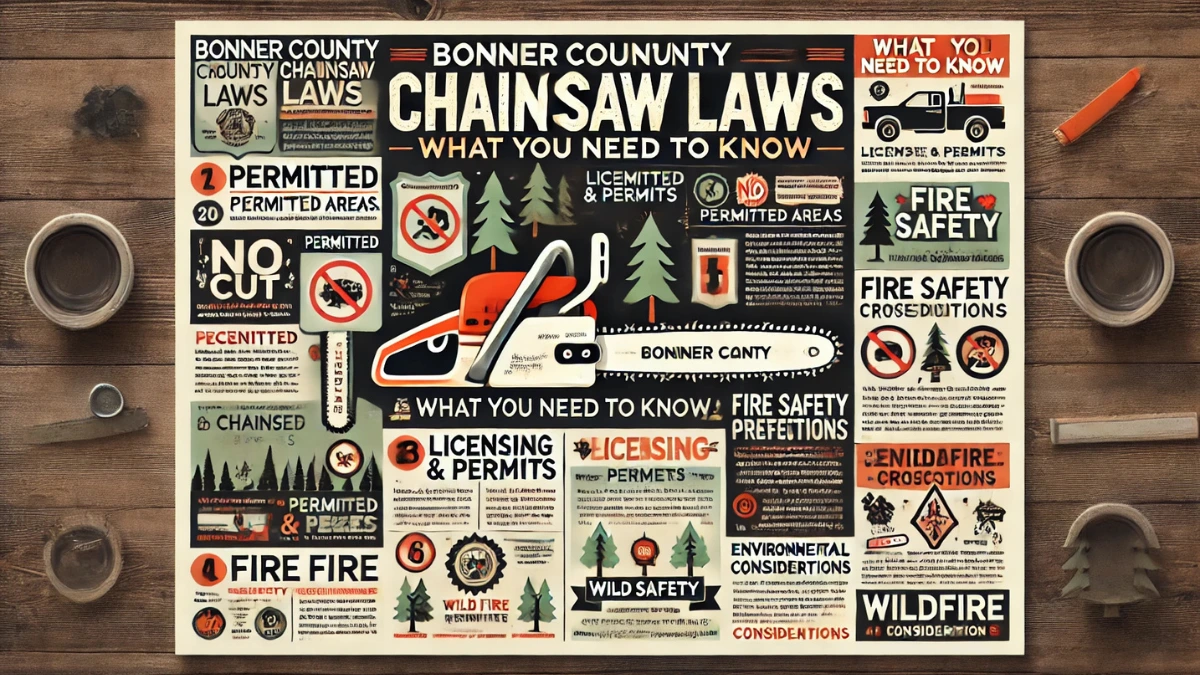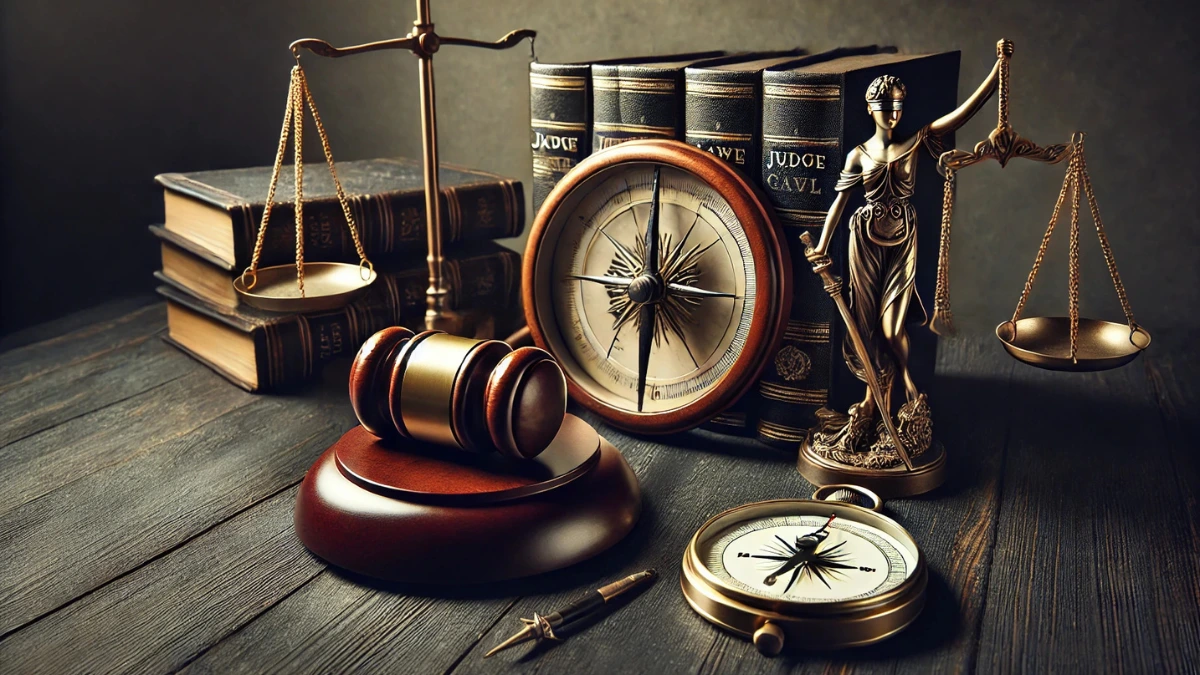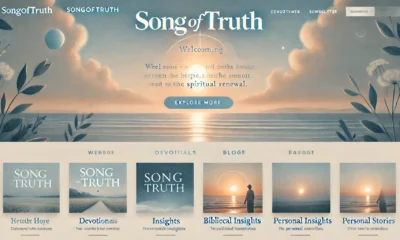LAW
Finding Pro Bono Lawyers in Chicago: A Comprehensive Guide to Legal Aid

The legal world can be daunting, especially for people facing financial challenges. This should not be a hindrance, though, as free lawyers in Chicago stand like bridges crossing the way to freedom for people in dire need of legal aid but cannot afford it. Whether one is undergoing a civil matter, family issue, or immigration case, pro bono services make sure that everyone gets their moment before justice.
We will investigate what pro bono legal aid is, where one can get such in Chicago, the types of cases they handle, and why seeking pro bono legal help could be your best option. And at the end of the day, you’ll have good insight into how to get the support you need without breaking your bank.
What Is A Pro Bono Lawyer?
Pro bono is a Latin phrase that is abbreviated as “pro bono publico,” meaning “for the public good.” At core, it is legal work that attorneys perform gratis or for reduced fee to people who cannot afford their services. Of course, there are myriad organizations and attorneys in Chicago who give of their time and expertise to assist the community through free legal service.
This type of service makes sure that people have access to legal representation in cases that might otherwise be out of their financial reach. Some lawyers have a great passion for social justice and look at pro bono work as a point of giving back.
Why Obtain Pro Bono Legal Services?
But before talking about where you can get free legal aid in Chicago, it would be nice to understand why this option may be right for you. Here are a few key benefits:
- Savings on Costs: Legal services can be costly. Pro bono lawyers work for free, so you don’t get burdened with patently unwarrantable high legal fees to discuss your case.
- Easy access to professional experts: A free service does not in any way mean that the quality of the service is low. Many pro bono lawyers are professionals who go out of their way to volunteer a portion of their time to society because they feel it is the duty and passion of every human being.
- Representation services- all types of cases: Pro bono covers all legal cases starting from family matters to immigration. This means that everybody gets a chance to seek help in their plight.
Cases Types Handled by Pro Bono Lawyers in Chicago
Pro bono lawyers in Chicago handle various types of cases that fall under a major stretch of legal areas. The following are some of the common types:
Family Law
- Divorce and Child Custody: Pro bono lawyers can assist with divorce, child custody, and even child support arrangements. Family disputes can indeed be emotionally draining; having an expert lawyer makes it easier to deal with such issues.
- Domestic Violence: Victims of domestic abuse can apply for a protective order, or they may seek lawyers who are practicing pro bono in court.
Immigration
- Applicants for Asylum: Refugee claimants may seek help in filing their asylum application.
- Deportation Defence: Immigrants with deportation orders may seek lawyers to represent them in deportation hearing and deportation court.
- Naturalization Assistance: Those seeking to naturalize as a United States citizen need pro bono attorneys to help with the paperwork and processes of naturalization.
Housing and Eviction
- Tenant Rights: Pro bono attorneys can advise tenants facing eviction, establish tenant rights, and also examine possible defenses as set forth herein.
- Landlord Disputes: If you are disputing your landlord, a pro bono attorney will be able to assist you in getting mediation or settling it legally.
Criminal Defense
- Misdemeanors and Minor Offenses: Criminal cases cannot be taken on pro bono but cases of minor offense and misdemeanor may be considered, such as first-time offenders or those who would otherwise suffer undue hardship.
- Juvenile Cases: Cases involving the young face lawful troubles to be benefited by pro bono lawyers specializing in juvenile law.
Employment Law
- Discrimination Cases: If you have experienced harassment at the workplace, pro bono attorneys will be able to help you file a case and get justice.
- Fair Termination: Lawyers can guide you on what to do if you think you were unfairly terminated from your employment.
Where to Find Pro Bono Lawyers in Chicago
There are so many organizations and resources for pro bono legal assistance in Chicago. Here are a few good options:
Chicago Volunteer Legal Services (CVLS)
- While CVLS is one of the oldest in the city, providing pro bono services, they offer free legal assistance to those whose civil cases require such service, involving hundreds of volunteer attorneys.
- Website: CVLS
Legal Aid Chicago
- This is one agency that used to be called Legal Assistance Foundation. This agency offers pro bono legal services in matters from housing and family cases to consumer protection and health care.
- Website: Legal Aid Chicago
Lawyers’ Committee for Better Housing (LCBH)
- This is the committee dealing with issues regarding housing. It helps tenants who are currently being asked to leave the apartment due to eviction or are constantly harassed by landlords.
- Website: LCBH
National Immigrant Justice Center (NIJC)
- NIJC provides pro bono services which include free legal procedures to immigration clients that range from refugees and asylum seekers to those facing deportation.
- Website: NIJC
The Chicago Bar Association (CBA)
- The lawyer referral service of the CBA will provide a client with free attorneys, depending on areas of specialization of the lawyers.
- Website: CBA
How to Qualify for Pro Bono Services
Pro-bono legal services may not be accessible to anyone, due to limited funding. You may be required to provide proof of income and explain why it is impossible for you to afford an attorney in order to establish eligibility. Each program will probably vary as to which are more lenient with their eligibility requirements, so seek out a few and ask if you qualify.
Some Steps to Take:
- Identify Your Legal Issue: Be clear in your mind of what you seek before you call. This will make it much easier to locate an attorney who specializes in the area on which you need help.
- Collect Documents: Collect copies of contracts, identification materials, court papers, and other papers related to your case.
- Contact the Organizations Directly: You might want to reach out to such organizations and ask if your case could be considered pro bono. You could dial them up or click into their websites to know their eligibilities and do not hide anything about your financial status because they will seek proof.
How Pro Bono Lawyers in Chicago Are Making a Difference
Perhaps pro bono attorneys are the pillars of social justice. Lawyers help more people to gain access to courtroom representation, rather than this being their right if they are able to afford someone with a degree in law. For example, pro bono attorneys can provide housing and help people get out of an abusive relationship, along with navigating through complicated federal and state immigration laws.
Their contribution is pro bono, that levels up the playing field to give communities without power a chance to rise up for their rights.
Conclusion
If one needs legal services but is low on budget, then pro bono lawyers in Chicago could be the way to go. Depending on the correct organization, free legal aid may be sought and rights secured.
No one ever should be left to fight legal battles alone, especially when support is here. Reach out, ask questions, and take advantage of services designed to make your life easier.
Call To Action: Need some more legal advice, legal tips, or resources? Just check our blog, or contact us for personal assistance.
FAQs
What does “pro bono” mean?
Pro bono means “for the public good.” It is when lawyers offer free or reduced legal services to those who cannot afford it.
How do I find a pro bono lawyer in Chicago?
To get lists of pro bono lawyers, you can reach out to organizations such as Chicago Volunteer Legal Services, Legal Aid Chicago, or the National Immigrant Justice Center.
Do pro bono lawyers take criminal cases?
Pro bono lawyers have taken criminal cases too, although in a small percentage. They take even minor crimes and misdemeanors but are not many that accept criminal cases since most of them only take up civil cases.
Are there income thresholds to qualify for pro bono services?
Yes, oftentimes, there is an income threshold. The dollar amount may differ according to the organization.
Are pro bono lawyers available for family law matters?
Yes, most pro bono attorneys specialize in family law and can help with cases such as divorce, child custody and domestic violence.
LAW
Rhode Island Motorcycle Accident Law Firm: Your Comprehensive Guide to Legal Support After a Crash

Motorcycle accidents can be devastating, often leading to serious injuries, costly medical bills, and complex legal battles. If you’re a motorcyclist in Rhode Island, understanding your legal options after an accident is crucial. This guide provides insights into how a Rhode Island motorcycle accident law firm can support you in navigating the legal system, ensuring you receive fair compensation and justice. From understanding your rights to selecting the best law firm, we cover everything you need to know. Read on to empower yourself with the knowledge to protect your interests.
Motorcycle Accidents in Rhode Island
Common Causes of Motorcycle Accidents
Motorcycle accidents can happen for various reasons, but some of the most common causes include:
- Distracted driving: Texting, phone calls, or other distractions can lead to drivers not noticing motorcyclists on the road.
- Speeding: Excessive speed reduces reaction time, increasing the risk of collisions.
- Impaired driving: Driving under the influence of alcohol or drugs can significantly impair a driver’s ability to operate their vehicle safely.
- Lane splitting: While not legal in Rhode Island, motorcyclists may engage in lane splitting, which can be dangerous and lead to accidents.
- Road hazards: Potholes, wet roads, and debris can be more hazardous for motorcycles than for cars.
Understanding Rhode Island Traffic Laws for Motorcyclists
Rhode Island has specific laws that apply to motorcyclists. Being aware of these can not only keep you safe but also strengthen your legal case if you’re involved in an accident. Key regulations include:
- Helmet requirement: All motorcyclists must wear helmets, and passengers under 21 are required to wear helmets by law.
- Motorcycle licensing: Riders must possess a valid motorcycle license or endorsement.
- Safety inspections: Motorcycles are subject to regular safety inspections to ensure they are roadworthy.
How a Rhode Island Motorcycle Accident Law Firm Can Help
Immediate Legal Support
After an accident, the priority is to get medical assistance. However, it is also important to secure legal support as soon as possible. A Rhode Island motorcycle accident law firm can help by:
- Evaluating your case: Determining whether you have grounds for a personal injury claim.
- Gathering evidence: Collecting photos, police reports, and witness statements that strengthen your case.
- Advising on insurance claims: Guiding you through the process of filing claims with your or the at-fault party’s insurance company.
Negotiating with Insurance Companies
Insurance companies often try to minimize payouts, but experienced motorcycle accident lawyers know the tactics they use and can negotiate on your behalf. They can:
- Assess the true value of your claim: Including medical expenses, lost wages, property damage, and pain and suffering.
- Prevent quick settlement traps: Ensuring you don’t accept a lowball offer from an insurance adjuster who is looking to settle quickly.
- Negotiate for maximum compensation: Leveraging evidence and legal knowledge to get the best possible settlement for you.
Representing You in Court
While many cases are settled out of court, sometimes negotiations break down. In such situations, a law firm can:
- File a lawsuit: Taking legal action if an insurance company refuses to offer fair compensation.
- Represent you in trials: Providing experienced courtroom representation to fight for your rights.
- Handle appeals: If necessary, they can also handle appeals to seek a favorable outcome.
What to Look for in a Rhode Island Motorcycle Accident Law Firm
Experience and Specialization
When choosing a law firm, ensure they specialize in motorcycle accidents and have a strong track record of success in this field. Experienced attorneys understand the nuances of motorcycle accident cases and are better equipped to handle complex legal situations.
Reputation and Client Testimonials
A law firm’s reputation can give you an idea of the quality of service you can expect. Look for firms with positive client testimonials and good reviews. Successful cases and satisfied clients are indicators of a law firm’s reliability and effectiveness.
Communication and Availability
You want an attorney who is accessible and communicates effectively. A responsive legal team ensures you are kept in the loop at all stages of your case, providing peace of mind and reducing stress during a challenging time.
Steps to Take After a Motorcycle Accident
Seek Medical Attention
Your health and safety are the top priorities. Even if you don’t feel seriously injured, see a doctor. Some injuries may not be immediately apparent but could become more serious if left untreated.
Document the Scene
Take photos of the accident scene, your injuries, and the damage to your motorcycle. This visual evidence can be crucial for building your case.
Obtain Contact Information
Get the contact information of other drivers, witnesses, and any law enforcement officers at the scene. This information is vital for your lawyer when they begin gathering evidence.
Contact a Motorcycle Accident Lawyer
The sooner you get in touch with a law firm, the better. Early legal intervention can preserve evidence, help you avoid costly mistakes, and improve your chances of receiving fair compensation.
Conclusion
Being involved in a motorcycle accident is a traumatic experience, but with the right legal support, you can navigate the complexities of insurance claims, lawsuits, and compensation. Choosing a reputable Rhode Island motorcycle accident law firm is crucial to protecting your rights and securing a fair settlement. If you or a loved one has been in a motorcycle accident, don’t hesitate to reach out to an experienced lawyer who can guide you through every step of the process.
Have you been injured in a motorcycle accident in Rhode Island? Contact our experienced legal team today for a free consultation. Let us fight for the compensation you deserve.
FAQs
What should I do immediately after a motorcycle accident?
Seek medical help, document the scene, collect contact information, and contact a motorcycle accident lawyer as soon as possible.
How much compensation can I get from a motorcycle accident claim?
The amount varies depending on factors like the severity of injuries, the extent of property damage, and the impact on your quality of life. A lawyer can give a more accurate estimate after assessing your case.
Can I file a claim if I was partially at fault for the accident?
Yes, Rhode Island follows a “comparative negligence” rule, which means you can still recover compensation even if you were partially at fault, but the amount may be reduced based on your percentage of fault.
How long do I have to file a lawsuit after a motorcycle accident in Rhode Island?
The statute of limitations in Rhode Island for personal injury cases is generally three years from the date of the accident. It’s best to consult a lawyer as soon as possible to avoid missing this deadline.
Why should I hire a specialized motorcycle accident law firm?
Specialized firms have the experience and expertise needed to handle the unique aspects of motorcycle accident cases, such as road hazards and vehicle visibility issues, which can significantly affect the outcome of your claim.
LAW
Understanding Bonner County Laws on Chainsaw Usage: What You Need to Know Before Cutting

Chainsaws are powerful tools that make cutting through wood easier, whether for clearing land, cutting firewood, or maintaining your property. However, just because you own a chainsaw doesn’t mean you can use it freely anywhere you want. Bonner County has specific laws regulating chainsaw usage, primarily to ensure safety and environmental protection. If you’re living in or planning to use a chainsaw in this area, it’s essential to know these rules to avoid legal trouble and fines.
This blog post will cover everything you need to know about Bonner County’s regulations on chainsaw usage, providing clear, helpful information to keep you informed and safe. Whether you’re a local resident or a visitor, this guide will help you understand what’s legal, what isn’t, and how to comply with local regulations.
Why Are There Chainsaw Laws?
Chainsaws can be hazardous, not just for the person using them but for anyone nearby. They can also cause significant environmental damage if misused. Bonner County, like many other regions, has implemented chainsaw regulations to:
- Ensure Public Safety: Reduce the risk of accidents and injuries.
- Protect the Environment: Prevent unnecessary tree cutting and manage deforestation.
- Control Noise Pollution: Limit the use of noisy equipment in residential areas.
- Mitigate Fire Risks: Regulate chainsaw use during high fire risk periods to avoid wildfires.
General Chainsaw Usage Guidelines
Bonner County doesn’t outright ban chainsaw use, but there are specific guidelines and restrictions:
- Permitted Areas: Chainsaw usage is generally allowed on private property, but public lands and parks may have restrictions. Check with local authorities if you plan to use a chainsaw on public lands.
- Noise Control: Using chainsaws during specific hours (typically early morning or late evening) may be restricted to minimize noise disturbances. Be mindful of these local noise ordinances.
- Fire Safety Precautions: During dry seasons, chainsaws can become a fire hazard. The county may issue temporary bans or require permits during high-risk periods.
Licensing and Permits
Before you fire up your chainsaw, make sure you understand Bonner County’s requirements for licenses and permits:
- Professional Use: If you’re using a chainsaw for business purposes, such as logging or tree removal, you will likely need a special license. This ensures that only trained and qualified individuals are operating chainsaws commercially.
- Permits for Tree Removal: Cutting down certain types of trees, especially larger ones or those on public property, may require a permit. Always check with Bonner County’s local regulations before proceeding with any tree removal.
- Fire Season Permits: During the dry season, you may need to obtain a permit to use a chainsaw. This helps the county monitor and prevent potential wildfire hazards.
Safety Tips for Using Chainsaws in Bonner County
Bonner County prioritizes safety, so it’s important to practice these safety measures:
- Wear Proper Protective Gear: Always use chainsaw-specific gloves, goggles, helmets, and steel-toe boots to protect yourself from flying debris and potential accidents.
- Ensure Proper Maintenance: Regularly check and maintain your chainsaw. A well-maintained chainsaw is less likely to malfunction, reducing the risk of accidents.
- Understand Local Weather Conditions: Avoid using chainsaws during extreme weather, as this can increase the risk of accidents and fires. Be aware of local weather advisories, especially during dry and windy conditions.
Environmental Considerations
Bonner County’s regulations also address environmental concerns. Here’s how:
- Preventing Deforestation: To protect the local ecosystem, there are restrictions on cutting down certain types of trees. Avoid cutting healthy, mature trees unless absolutely necessary.
- Wildlife Protection: Be cautious of the local wildlife. Certain areas may be off-limits to chainsaw use during breeding seasons to protect local fauna.
- Proper Disposal of Wood and Debris: Ensure that wood and debris are disposed of properly. Leaving large piles of wood can create fire hazards and attract pests.
What Happens If You Violate Chainsaw Laws?
Violating chainsaw regulations in Bonner County can lead to serious consequences, including:
- Fines: Depending on the severity of the violation, fines can range from minor penalties to substantial amounts.
- Confiscation: In severe cases, your chainsaw may be confiscated, and repeated violations could result in more stringent penalties.
- Legal Action: If your actions cause significant harm, such as starting a wildfire or damaging protected areas, you could face legal action, including criminal charges.
How to Stay Informed and Compliant
- Check Local Ordinances Regularly: Laws can change, especially around fire season. Stay updated by checking the Bonner County official website or local government offices.
- Consult Professionals: If you’re unsure about any regulations, consult with local forestry experts or legal professionals who specialize in environmental law.
- Attend Local Workshops: Some local community centers offer safety workshops that include training on the proper and legal use of chainsaws.
Conclusion
Chainsaws are versatile and efficient tools, but in Bonner County, using them comes with responsibilities. By understanding and following local laws, you can ensure that you’re operating within legal bounds, keeping yourself and the community safe. Whether you’re cutting wood for personal use or as part of a business, adhering to these regulations will help you avoid fines, legal issues, and accidents. Stay informed, stay safe, and always use your chainsaw responsibly.
If you found this guide helpful, make sure to share it with others who might benefit! Subscribe to our newsletter for more useful tips and updates on local regulations. Have questions or need more details? Drop a comment below or check out our related articles on tool safety and local environmental laws.
FAQs
Do I need a license to use a chainsaw on my own property in Bonner County?
No, you generally do not need a license for personal use on your own property, but there may be exceptions for certain types of tree cutting.
Can I use a chainsaw in Bonner County’s public parks?
It depends on the park and the activity. Some parks allow chainsaw use for maintenance or emergency purposes but prohibit it for general use. Always check local rules.
What are the penalties for violating fire season regulations?
Penalties can include fines, confiscation of equipment, and even legal action, especially if your actions result in a wildfire.
Are there specific hours when I can’t use a chainsaw in Bonner County?
Yes, there are noise ordinances that may limit chainsaw use to certain hours, especially in residential areas. Check with your local council for specific details.
Can I cut down any tree on my property with a chainsaw?
No, some trees may be protected, and cutting them without a permit could lead to fines. Always check if the tree requires a removal permit.
LAW
The 1624 Repeal of Anti-Welsh Laws: Unraveling a Turning Point in Welsh History

In 1624, a monumental shift occurred that changed the course of Welsh history—the repeal of the oppressive anti-Welsh laws. For centuries, these laws suppressed the culture, language, and identity of the Welsh people, creating deep-rooted resentment and division. This blog explores the significance of the 1624 repeal, why these laws existed in the first place, and how their abolition marked a new era for Wales. By understanding this pivotal moment, we can appreciate the resilience of the Welsh spirit and the enduring importance of cultural freedom. Whether you’re a history buff or simply curious about Wales, this article offers insights you won’t find anywhere else.
What Were the Anti-Welsh Laws?
The anti-Welsh laws were a series of legal restrictions implemented after the Laws in Wales Acts 1535 and 1542, also known as the “Acts of Union.” These laws aimed to assimilate Wales into the Kingdom of England, primarily by:
- Suppressing the Welsh language.
- Banning Welsh people from holding public office.
- Imposing English as the sole language of legal and official proceedings.
These measures were not just administrative; they were tools of cultural domination, aiming to erase Welsh identity and force conformity to English norms.
Historical Context: Why Were These Laws Enacted?
To understand why these laws were put in place, we need to look back to the early 16th century. After years of political turmoil, the English Crown sought to stabilize and strengthen its rule. By integrating Wales into England legally, economically, and culturally, the Tudor monarchy aimed to:
- Centralize power: The Acts of Union facilitated administrative control over Wales, making governance easier for the English Crown.
- Prevent rebellion: By weakening the Welsh nobility and limiting their influence, the Crown sought to curb any potential insurrections.
- Promote economic integration: English laws ensured that Wales would adhere to the same legal and economic standards, promoting trade and cohesion within the kingdom.
However, this legal integration led to the erosion of Welsh traditions, customs, and language, creating lasting resentment.
The 1624 Repeal: What Changed?
The repeal of the anti-Welsh laws in 1624 was a landmark event, reflecting a shift in political and cultural attitudes. There are several factors that led to this change:
- Growing pressure from Welsh nobility: Welsh lords and landowners began to push back against the laws, leveraging their political influence to advocate for change.
- Cultural renaissance: The early 17th century saw a revival of Welsh literature, music, and language, which played a significant role in fostering a sense of national pride and identity.
- Changing priorities in England: Political tensions and economic challenges in England diverted attention away from strict control over Wales, creating an opportunity for policy reform.
The repeal did not instantly restore Welsh autonomy, but it marked a critical step towards recognizing and respecting Welsh cultural identity.
The Impact of the Repeal on Welsh Society
The repeal of the anti-Welsh laws had immediate and long-lasting impacts:
- Revival of the Welsh language: Without legal barriers, Welsh people could once again use their native language in public life, leading to a resurgence of Welsh literature and oral traditions.
- Increased representation: The repeal allowed Welsh individuals to participate more fully in civic life, paving the way for greater representation in local and national governance.
- Cultural pride: The restoration of cultural rights helped boost national pride, encouraging a renewed celebration of Welsh customs, festivals, and heritage.
Legacy and Modern-Day Relevance
The 1624 repeal set the stage for future cultural preservation efforts. Today, Wales is known for its vibrant culture and strong national identity, aspects that might have been lost if not for the efforts to reverse the laws that stifled them. Modern initiatives, such as promoting the Welsh language and celebrating St. David’s Day, have roots in the freedom gained in 1624.
Moreover, this history has shaped how Wales engages with cultural preservation and autonomy within the United Kingdom. Discussions on devolution and national identity today often draw from this deep well of historical experience, underscoring the ongoing importance of cultural rights and regional autonomy.
Conclusion
The 1624 repeal of anti-Welsh laws was more than a legal change—it was a cultural revolution. It marked a turning point where the people of Wales could reclaim their language, customs, and identity, setting the stage for centuries of cultural resilience. Understanding this chapter of history helps us appreciate the richness of Welsh heritage and the importance of protecting cultural diversity. By learning from the past, we can ensure that every culture, no matter how small, has the opportunity to thrive.
FAQs
What were the Laws in Wales Acts?
The Laws in Wales Acts of 1535 and 1542 were legislations that aimed to integrate Wales fully into the English legal and administrative system, effectively dissolving separate Welsh laws.
Why were anti-Welsh laws repealed in 1624?
The repeal was influenced by cultural resurgence, political advocacy from Welsh leaders, and changing priorities in England, which allowed for more cultural flexibility.
Did the repeal of the anti-Welsh laws restore complete autonomy to Wales?
No, it did not restore autonomy, but it allowed for greater cultural freedom and participation in civic life, setting a precedent for future efforts toward self-governance.
How did the repeal affect the Welsh language?
The repeal enabled the use of the Welsh language in public and official settings, leading to a revival of Welsh literature, education, and cultural expression.
Is the 1624 repeal still relevant today?
Yes, it represents a foundational moment in the preservation of Welsh culture. Contemporary efforts to promote the Welsh language and identity can trace their origins back to this historic event.
-

 EDUCATION2 weeks ago
EDUCATION2 weeks agoNicky Doe Kiko: The Visionary Redefining Creative Expression
-

 EDUCATION2 weeks ago
EDUCATION2 weeks agoCollice61: The Future of Online Storytelling and Why It Matters
-

 BUSINESS1 week ago
BUSINESS1 week agoFintechZoom.com DAX40 Today: Navigating the Dynamic World of Finance
-

 BUSINESS2 weeks ago
BUSINESS2 weeks agoAWT69X: Unveiling the Features and Benefits of This Game-Changing Device
-

 EDUCATION1 week ago
EDUCATION1 week agoDiscovering Anna Klinpap: A Visionary in the World of Creativity
-

 GENERAL2 weeks ago
GENERAL2 weeks agoPrince Narula’s Digital Journey with PayPal: How It’s Fueling His Brand Success
-

 BUSINESS6 days ago
BUSINESS6 days agoEverything You Knew About SongOfTruth.org Blog: Complete Guide
-

 GENERAL2 weeks ago
GENERAL2 weeks agoDiscover the ://Vital-Mag.Net Blog: Where Content Meets Innovation and Inspiration





